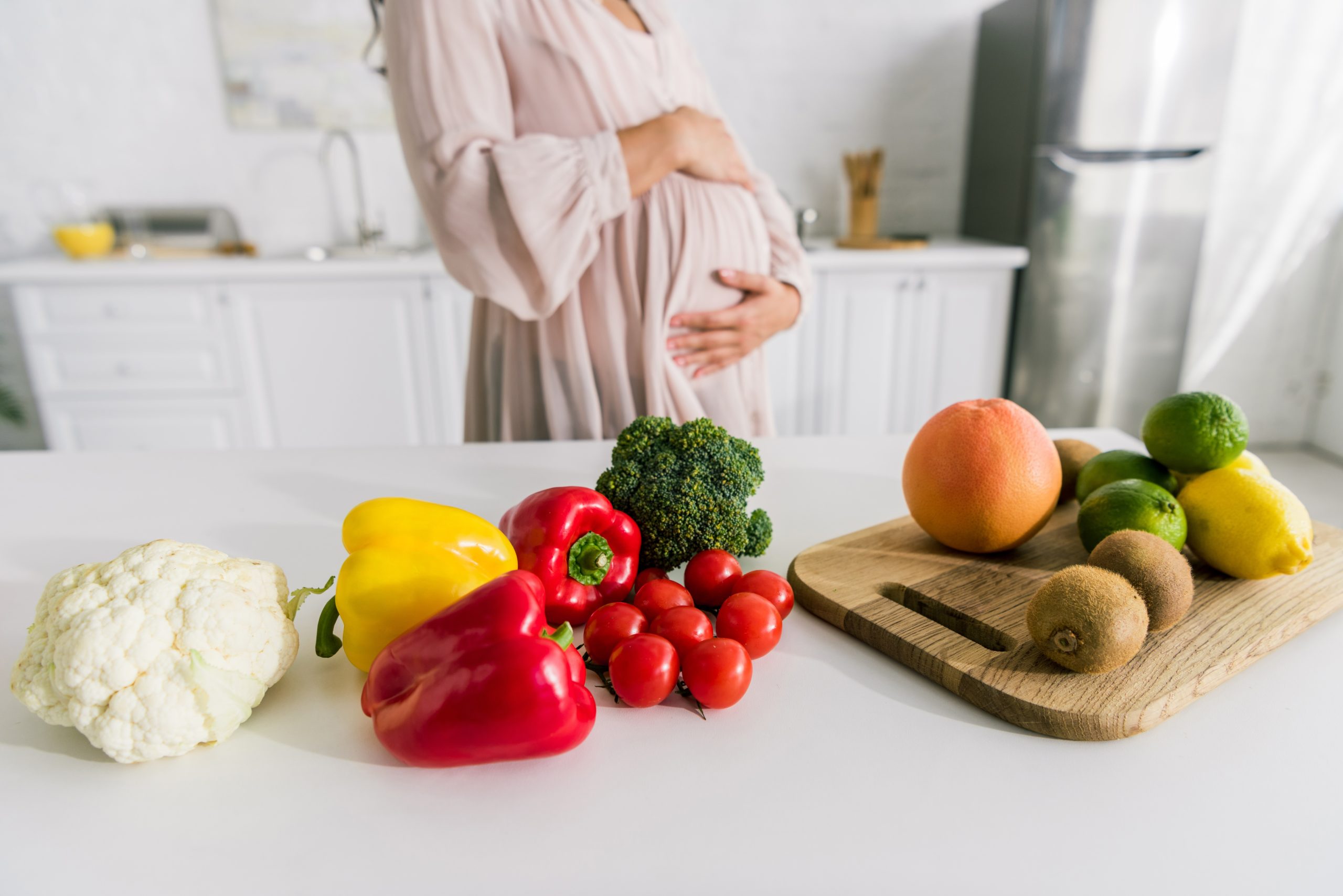Is it safe to follow a vegan pregnancy diet?
Nutrition is such an important part of your pregnancy journey–as your baby grows, your body will need extra nutrients to support both you and the baby. If you are vegan, you may worry that you cannot follow a vegan diet during pregnancy because of the extra nutritional needs, but that may not be true. There’s no evidence that says you have to eat meat or any animal byproducts during your pregnancy. As long as you ensure that you’re getting enough nutrients, eating a whole diet, and following your Genesus provider’s recommendations, you’re fine to follow a vegan pregnancy diet.
Vegan diet and pregnancy
Many people have turned to plant-based diets for a number of reasons, and the popularity of vegan diets has increased exponentially. Research shows that plant-based diets are good for your health–studies show that a plant-based diet lowers the risk of cardiovascular disease, high blood pressure, and obesity. There isn’t enough evidence to say whether a vegan diet is more or less healthy than a standard diet during pregnancy. It’s less important to focus on the type of diet you will follow than the nutrients and vitamins.
Essential Nutrients for a Healthy Vegan Pregnancy
Your nutritional needs increase during pregnancy, and you need to make sure you’re eating enough good, healthy and filling foods to support you and your baby. According to the American Pregnancy Association, your body needs as much as 300 extra calories per day in the 2nd and 3rd trimesters. But it’s important that you get these extra calories from healthy sources of whole food that are high in nutrients like protein, iron and folate. If you’re vegan, there are plenty of ways to get these nutrients on a plant-based diet.
Plant-based protein sources
Protein is an important part of your diet regardless of whether you’re pregnant or not, but when you’re pregnant, it’s vital as protein supports the breast and uterine tissue growth. You should aim for 2-3 servings per day. While many people turn to meat and eggs for protein, there are several plant-based sources:
- .5 cup of tofu is one serving
- 1/3rd cup of nuts is one serving
- .5 cup of legumes, such as split peas, black beans or chickpeas, is one serving
Healthy fats
Fats used to get a bad rep, but we now know that healthy fats, such as monounsaturated and polyunsaturated fats, are essential to your overall health. For developing babies, a type of fat called Omega 3s is a particularly beneficial type of long-chain polyunsaturated fats (LCPs) that play an important role in your baby’s brain, visual and nervous system development. Sources of plant-based fat include:
- Nuts, particularly almonds, pistachios, pecans, pine nuts and walnuts
- Avocados have a high concentration of monounsaturated fat, as well as vitamin K, which helps the body absorb protein and potassium
- Chia seeds have healthy fats, protein and fiber, which is excellent for women dealing with pregnancy constipation (which affects as many as 38% of women!)
Calcium
Just like with children and adult bodies, growing babies need calcium for their bones and tooth buds. Calcium also helps your body regulate fluids. You should aim for around 1000mg daily during pregnancy, but you don’t have to get it from cow’s milk. Some plant-based sources of calcium are:
- Beans, peas and lentils (white beans, etc.)
- Turnip greens and kale
- Seaweed
Iron and zinc
Along with adequate levels of sodium, potassium, and water, iron helps increase your blood volume during pregnancy. Zinc is an important mineral that supports cell growth, brain development and a strong immune system. Additionally, zinc deficiency has been linked to preterm birth and possibly infant growth. The good news is that iron and zinc are found in many plant-based foods, such as:
- Lentils, quinoa and hemp seeds are all excellent sources of zinc
- Pumpkin seeds, kidney beans and chickpeas are also good plant-based zinc sources
- Tofu and soy-based products like tempeh are good sources of iron
- Another great source of iron is blackstrap molasses, a special kind of syrup that’s also high in iron, calcium, potassium and magnesium. However, it does have sugar, so you should limit your daily intake.
Folate
Folate is an important nutrient that supports your body during the first few months of pregnancy when the baby’s spine and brain develop. Folate is found in:
- Green vegetables such as broccoli, spinach and asparagus
- Legumes like chickpeas and lentils
- Most prenatal supplements have folic acid, a synthetic form of folate
Safety Concerns and Recommendations
If you’re pregnant, regardless of whether or not you’re vegan, you may have a lot of questions or concerns about what’s safe to eat during pregnancy. Here are some baseline recommendations, but remember also consult your healthcare provider before making any changes to your diet:
Caffeine and alcohol
You should stay away from caffeine during pregnancy. In a 2021 study, pregnant women who consumed ~50 mg of caffeine on average had slightly smaller babies than those who did not. Smaller birth sizes are associated with an increased risk of obesity, diabetes and heart disease later in life. Any amount of alcohol can harm unborn babies, so it is recommended to no drink any during pregnancy.
Is tofu safe during pregnancy?
Tofu is a major part of many vegan diets and a good source of protein, calcium and other nutrients. In moderation and as part of a varied diet, tofu is safe to eat during pregnancy. The main concern is soy, but most experts agree that a moderate daily soy intake is fine for pregnant women.
Can pregnant women eat edamame?
Edamame, a popular Japanese dish made from immature soybeans cooked in their pods, is a yummy treat for many. It’s also packed with folic acid, omega-3 fatty acids, calcium, iron and zinc, and it is gluten-free. Because edamame is soy, you should eat it in moderation and, whenever possible, consume organic soy products.
Can you have chia seeds while pregnant
Chia seeds are delicious, can be prepared in a variety of dishes, and are packed with fiber, iron, calcium and healthy fats. Chia seeds are a low-risk food with many benefits, but they should still be eaten in moderation. Because chia seeds absorb a lot of water and are high in fiber, eating too many of them may cause stomach issues like constipation.
Supplements to consider when you’re vegan while pregnant
Some foods have key nutrients added during processing, but they may not be enough to meet your daily needs. For example, vitamin B12 is critical to your baby’s brain development and nervous system, but vitamin B12 is only found naturally in animal byproducts. You may want to consider supplementing B12 along with iron, calcium or other nutrients if you are having trouble meeting your daily needs. A good prenatal vitamin will also have many of the necessary nutrients. It’s imperative that you consult with your doctor before starting any new supplements.
Talk to your doctor about a safe vegan pregnancy
If you’re concerned about how you can stick with your vegan diet while pregnant, do not hesitate to speak with your Genesis provider about your options. There are various plant-based nutrient sources you can incorporate into your diet. We also have registered dietitians on staff who can help you find the best plan for your pregnancy, so request an appointment today.


